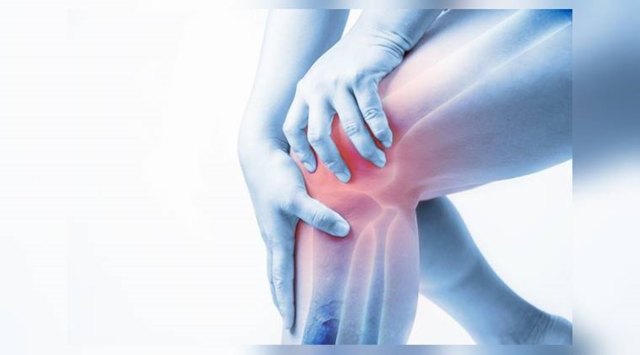Cold chilling your bones? Exercise, hydrate and eat healthy to avoid pain, falls
Pain receptors become more sensitive during the winter season, says Dr Manit Arora, Consultant, Orthopaedics and Sports Medicine, Fortis Hospital, Mohali. He offers a few tips to get by a harsh winter
 Cold weather can impact your bones. (Photo by Thinkstock Images)
Cold weather can impact your bones. (Photo by Thinkstock Images) The freezing temperatures can aggravate the condition of those suffering from joint pains or deteriorating bone health. This is because the bone loss in our bodies is at its peak owing to a variety of factors. Dr Manit Arora, Consultant, Orthopaedics and Sports Medicine, Fortis Hospital Mohali, explains the preventive measures to maintain healthy bones during winter.
How does cold weather affect bones? Stating that cold weather tends to increase sensitivity when the temperature drops, Dr Arora says, “Pain receptors become more sensitive during winter. Prolonged exposure to freezing temperature affects bone strength and causes pain in joints. The joints stiffen up. Wear appropriate woollen clothing and avoid falls,” says Dr Arora. His advisory is as follows:
Tips to ensure bone health
Exercise: Undertake a physical activity or go for a brisk walk. Vitamin D from the sun is not only beneficial to the bones but movement and exercise help the bones become stronger and more robust due to re-modelling forces. Even a walk mid-day when the sun is high ensures good exposure and decreases our chances of Vitamin D levels falling. But people staying in cities with higher levels of pollution can’t get the benefits because ultraviolet B radiation in the sunlight gets filtered out by suspended particles. But make sure that you take Vitamin D supplements only after a blood test as suggested by your orthopaedician.
Otherwise, exercise indoors where it is not too cold. When you exercise, the blood supply reaches the bones and joints effectively, which otherwise gets affected with vasoconstriction, when the body takes away the blood supply away from the peripheral body parts like upper limbs, lower limbs and extremities and directs it to the abdominal viscera and core areas like the heart, lungs and the brain.
 Climbing stairs are good for bones
Climbing stairs are good for bones
Weight-bearing exercises like walking and climbing stairs are good for bones as they put pressure on them as you move around. Choose an exercise routine that works for you and stick to it, even if it takes 15 minutes a day.
Hydrate: Water consumption drops during the winter months and hence, less water is available for bone strength. Tea and coffee act as dehydrating drinks. Ensure that water consumption remains good.
Eat healthy: Heavy foods during the winter months are often bereft of important vitamins and minerals. Ensure to consume a balanced diet with plenty of calcium and vitamin C, D, and E along with B12 to provide the necessary ingredients for good health. A multivitamin is also a good option. Most of these can be managed well with dietary inputs.
Avoid long drives: Accidents continue to be one of the most common causes of fractures in India and this worsens during winter when thick fog engulfs the region. Try to travel during the sunlight hours and take multiple breaks to avoid over-exertion.
Exercise caution: Be careful when walking on stairs and floors as frost and moisture can lead to falls and broken bones. Ensure you have good hand support on the stairs at all times and avoid places where you see slippery floors or roads.
📣 For more lifestyle news, follow us on Instagram | Twitter | Facebook and don’t miss out on the latest updates!



- 01
- 02
- 03
- 04
- 05




























